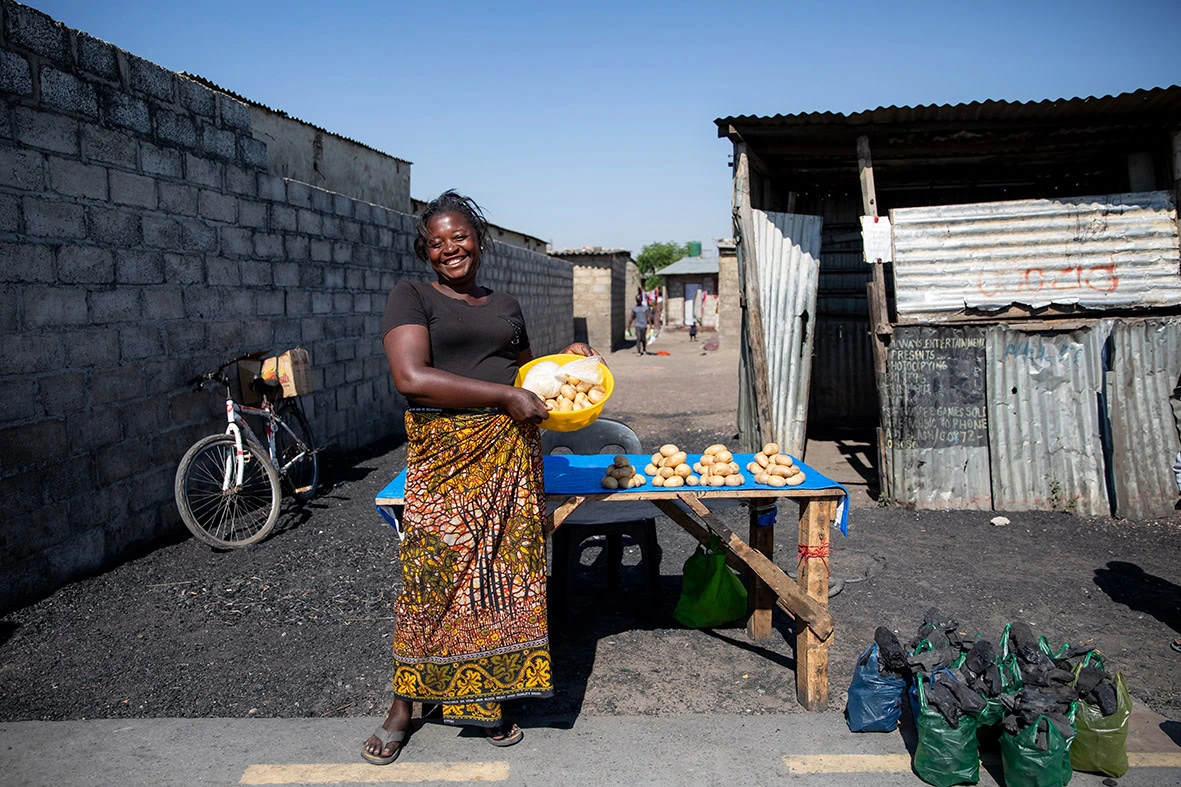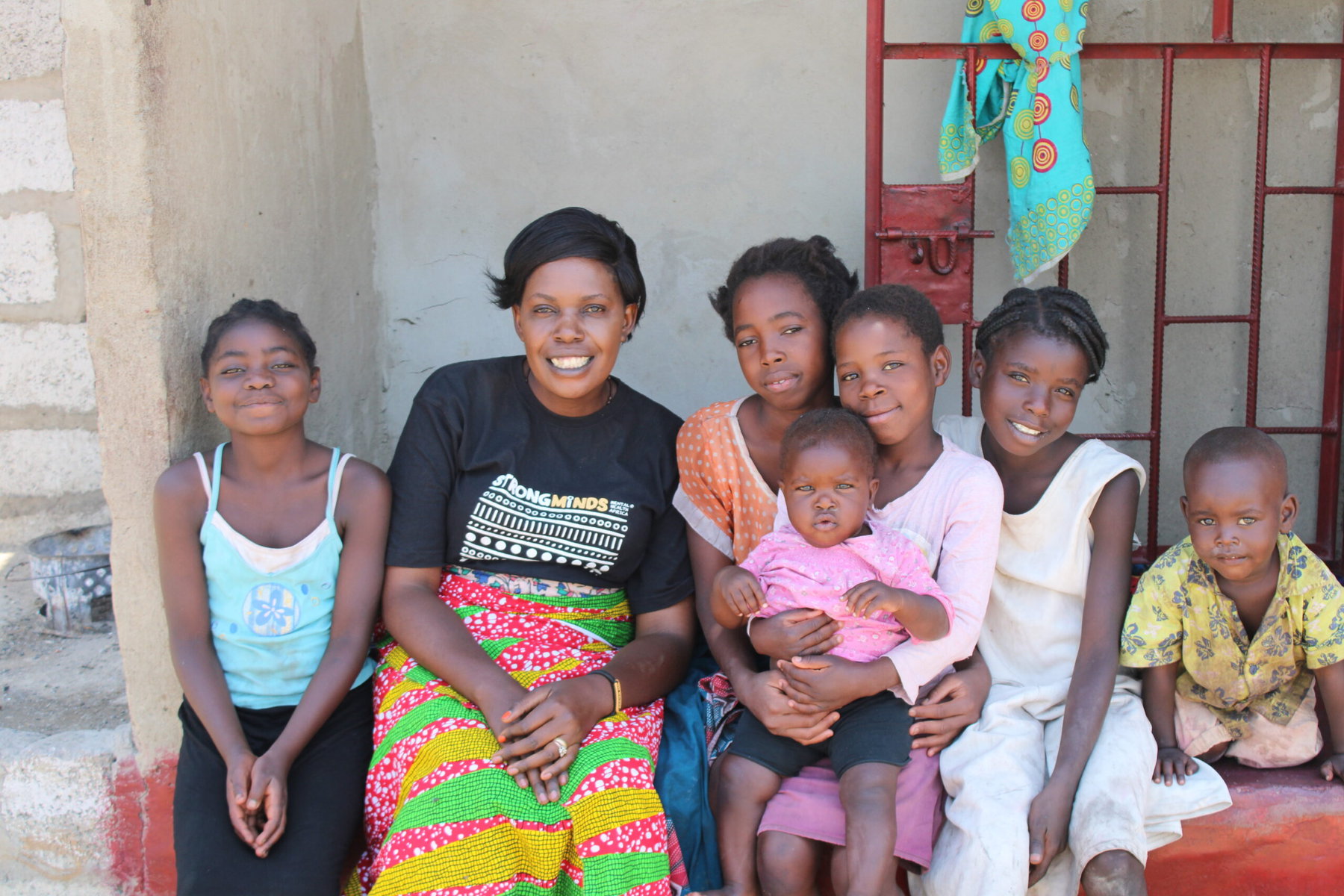Chimbala sees a big need for mental health support in Zambia. StrongMinds reaches potential clients by going door-to-door through neighborhoods. It can be challenging, she says. Often, people who are depressed don’t want to engage. But it helps to meet people where they are and offer treatment right in their communities.
“There isn’t a lot of awareness of mental health,” Chimbala says. “So when you get in the communities to speak about mental health, translate the symptoms in the local languages that people speak, then they’re able to relate.”
After Priscilla Chama’s husband died suddenly, she struggled. She couldn’t concentrate, and lost interest in doing any activities.
When a woman working with StrongMinds came to Chama’s door, she decided to go to a group therapy session. During the first meeting, Chama didn’t feel comfortable speaking about her personal story. But as other women in the group began to share, she started to open up.


“You become friends with everyone there,” she says. “You learn from other people’s experience, you also tell them your experience.”
At one session, she was given homework to imagine her husband was seated in an empty chair and to speak with him. It was an intense emotional experience, she recalls. But the exercise helped her to accept her husband’s death.
Like Phiri, Chama trained to become a facilitator after she completed her own treatment. Both women now work in the area around Lusaka, Zambia’s capital and biggest city. It can be challenging to get women to participate. Many ask if they’ll get any compensation, and women often don’t have much time to go to the sessions.
Chama sees the positive impact the treatment has on the groups she facilitates. “It is really a benefit to the community,” she says.
StrongMinds isn’t the only organization that uses an approach of training people with little or no health background to provide mental health services. Friendship Bench, an organization based in Zimbabwe, similarly mobilizes lay people to facilitate mental health support. That use of community members is an “important innovation” to expand mental health support, according to Mark Van Ommeren, who heads the mental health unit of the World Health Organization’s Department of Mental Health and Substance Abuse.
Van Ommeren says StrongMinds is particularly notable for how the organization has been able to scale its services up, while adhering to an evidence-based model that has been tested and proven in African contexts.
“There is an enormous amount of people that are suffering [from] depression, and also other disorders,” Van Ommeren says. “They’re making a difference.”


Maintaining the quality of StrongMinds treatment as the organization expands is a challenge, acknowledges Mayberry. Volunteers go through regular training refreshers. Surprise audits check in on the quality of programs. And the organization is rigorous about screening clients throughout treatment to gauge their symptoms and collecting data on outcomes.
Over the last decade, StrongMinds has refined its approach, and reduced the course of treatment from more than $400 per patient a decade ago to $40 — which the organization fully covers so participants receive treatment for free. While this is a relatively low price tag for mental health treatment, Mayberry says funding remains a limitation.
For women who struggle with depression, the group therapy can have a huge impact on their lives. Phiri, who went through the treatment in 2020, says it helped her to connect with people again. Now, she enjoys bringing that support to others.
“I really want to see people get out from depression,” she says. “It’s my passion.”



